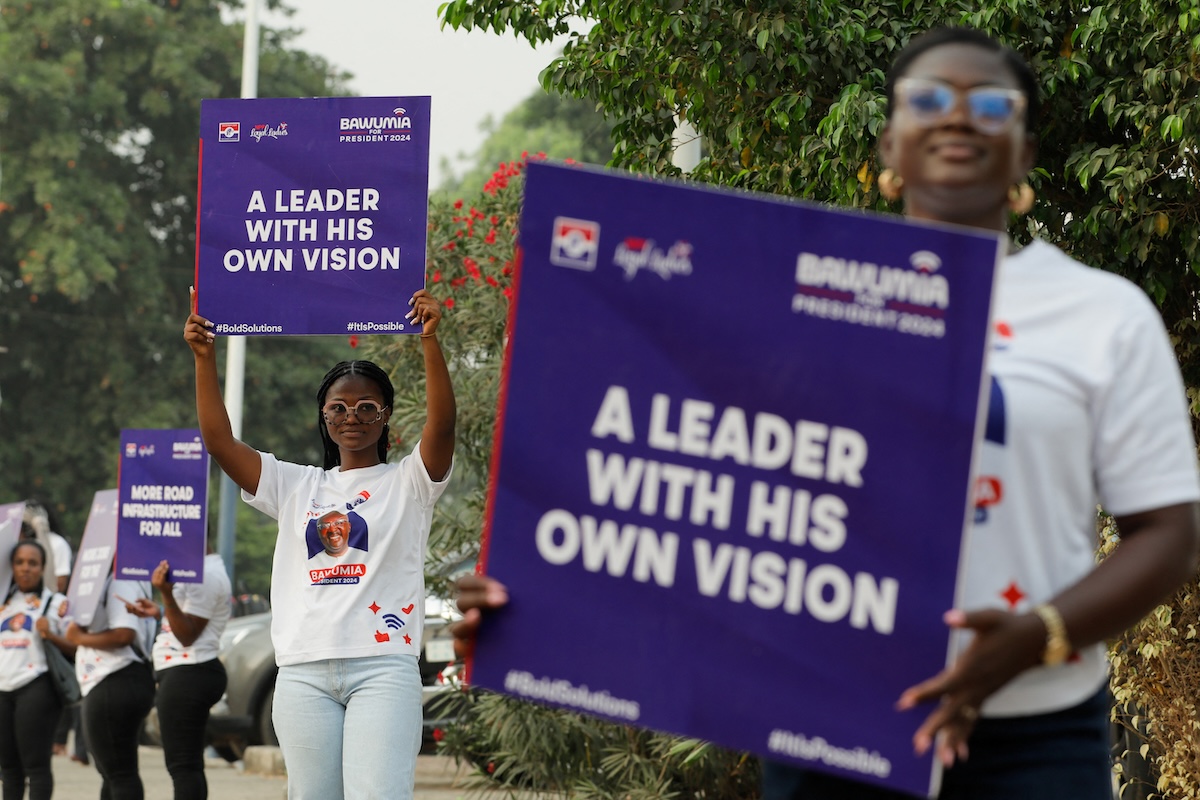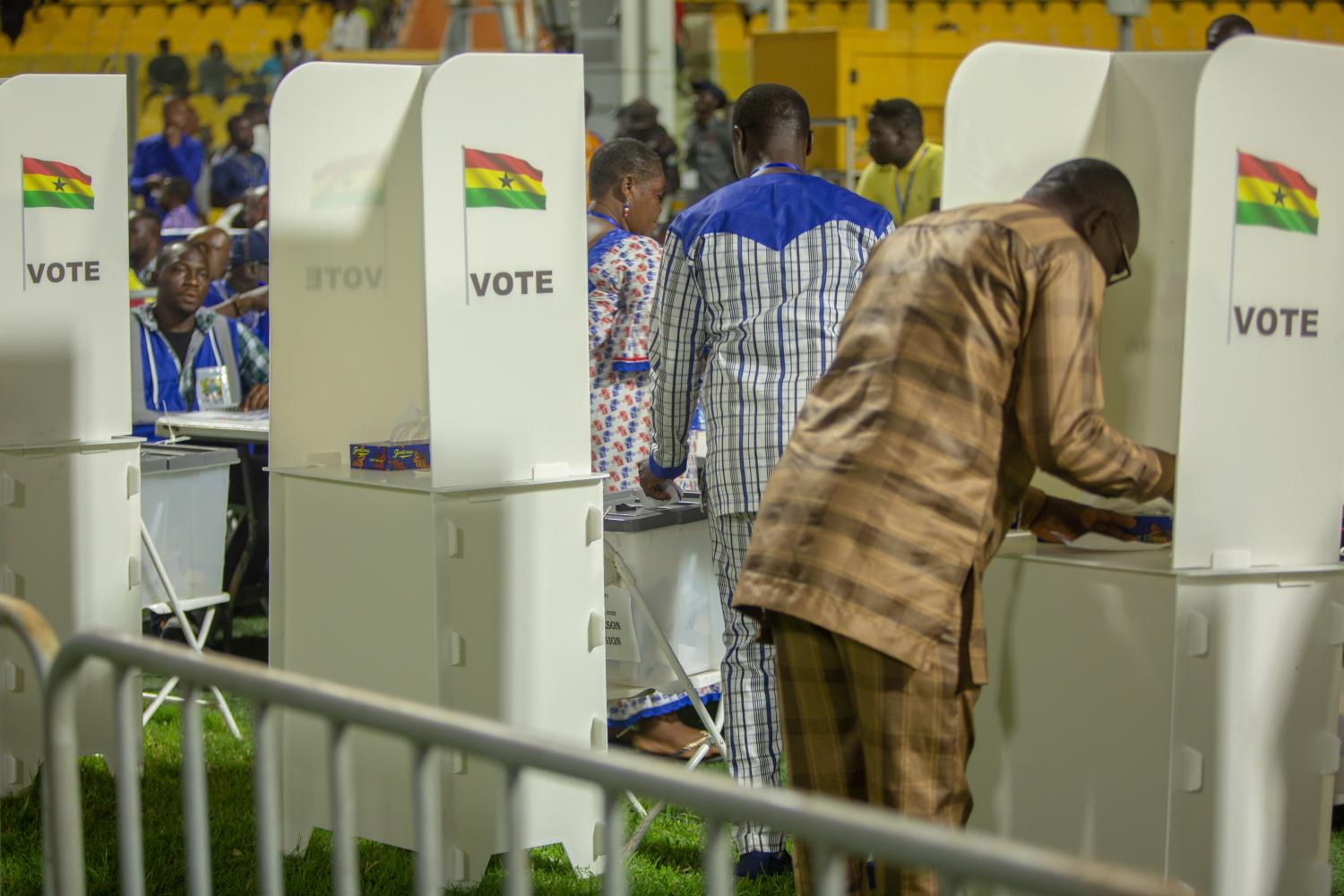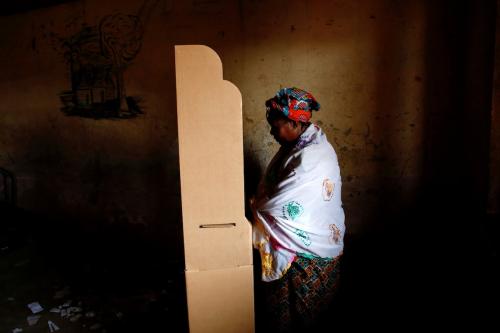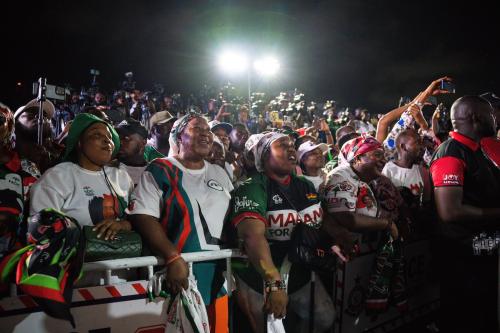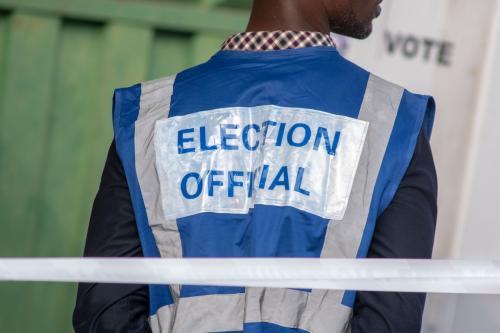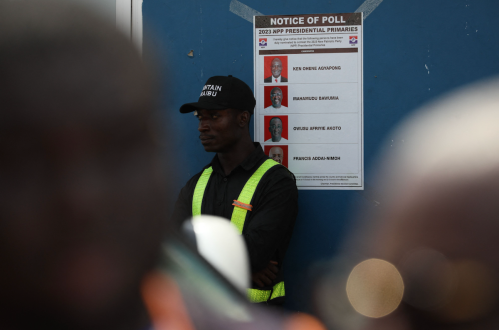This case study is part of a project on the state of democracy in Africa. See our other works from this project.
The organizational strength and commitment of Ghana’s two major parties to multiparty elections and peaceful executive turnover have supported the country’s democratic development. Yet party-aligned grassroots activists remain a persistent source of democratic weakness. Many of the undemocratic practices that characterize elections—such as vote buying, voter roll manipulation, and election day violence—are carried out by these foot soldiers who constitute the frontline of party mobilization. In internal party contests, grassroots actors are frequently reported to sell their votes to the highest bidder, undermining their representative role and weakening accountability between elites and rank-and-file members. Despite this, reform efforts to strengthen democracy have focused largely on voters and elites, neglecting the pivotal role of grassroots actors. We argue that fostering democratically oriented parties where both leaders and grassroots members subscribe to and practice democratic ideals is essential to sustaining Ghana’s democratic gains. Drawing on focus groups and an original survey of local party executives across twelve constituencies, we demonstrate that grassroots actors embody both risks and opportunities. They can entrench undemocratic practices in the country’s politics, but they also recognize their democratic responsibilities and articulate demands for stronger and inclusive intra-party democracy. Strengthening democratic norms among grassroots actors would therefore be central to consolidating Ghana’s democracy.
-
Acknowledgements and disclosures
The Brookings Institution is a nonprofit organization devoted to independent research and policy solutions. Its mission is to conduct high-quality, independent research and based on that research, to provide innovative, practical recommendations for policymakers and the public. The conclusions and recommendations of any Brookings publication are solely those of its author(s), and do not reflect the views or policies of the Institution, its management, its other scholars, or the funders acknowledged below.
This publication is supported by a grant from the Open Society Foundations.
Brookings recognizes that the value it provides is in its absolute commitment to quality, independence, and impact. Activities supported by its donors reflect this commitment.
The Brookings Institution is committed to quality, independence, and impact.
We are supported by a diverse array of funders. In line with our values and policies, each Brookings publication represents the sole views of its author(s).
